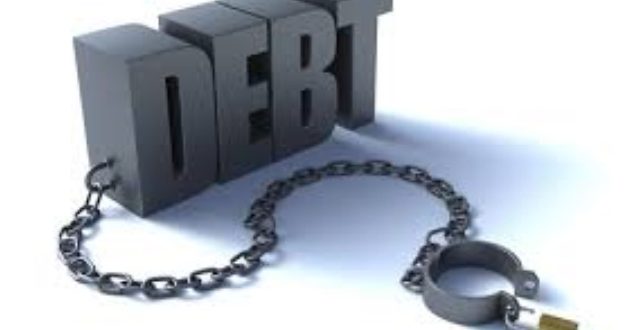Ghana’s debt stock has increased by about GS86.6 billion since the Nana Akufo-Addo government came into office three years ago.
Some economists and market watchers have described the rate and quantum of borrowing by the government as alarming and warned that it could plunge the nation into an economic crisis if care is not taken.
In December 2016, Ghana’s debt was GHS122, representing about 62% of GDP. This was based on the old economic value of the country.
However, at the end of September 2019, Ghana’s public debt was about GHS208.6 billion, representing 60.3% of GDP due to the rebasing of the Ghanaian economy.
Of the total debt stock, domestic debt was GHS101.4 billion, of which GHS11.2 billion (3.8 per cent of GDP) represented bonds issued to support the financial sector clean-up, while external debt was GHS107.2 billion.
Per the trend, the debt stock would almost for certain, surpass GHS210 billion at the end of December 2020.
Comparatively, Ghana’s debt stood at GHS42 billion in 2012. In 2008, Ghana had borrowed about GHS9 billion.
The above figures showed that former President John Mahama’s administration borrowed about GHS80 billion while in office.
Largely, the monies borrowed are used to repay maturing debts (interest and sometimes principal) with little going into infrastructural projects. The arguments are that the borrowed funds are used for consumption purposes instead of capital projects.
With Greece and Portugal’s debt crises still fresh on the minds of Ghanaians, some economists and financial consultants have raised an alarm regarding the quantum of borrowing.
Portugal had a high national debt owing to her government’s actions during the financial crisis of 2008.
However, by the end of 2017, she had accumulated a debt-to-GDP ratio of 125.6%.
For Greece, the debt crisis was as a result of the dangerous amount of sovereign debt she owed the European Union between 2008 and 2018. In 2010, Greece defaulted on its debt, which threatened the viability of the eurozone.
A high debt crisis leads to high interest rate and inflation, loss of investor confidence, slow economic growth and high unemployment rate.
The IMF has already warned that Ghana has a high risk of becoming a debt-distressed country.
According to the Bretton Wood institution, the Debt Sustainability Analysis is mainly driven by debt service to revenue exceeding the threshold throughout the forecast horizon, though all other indicators also exceed their thresholds at some point over that horizon.
Source: classfmonline.com
 Home Of Ghana News Ghana News, Entertainment And More
Home Of Ghana News Ghana News, Entertainment And More





